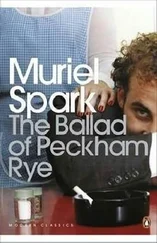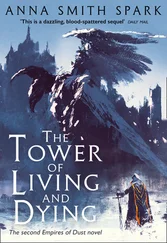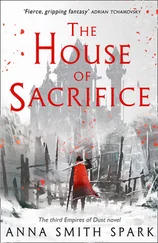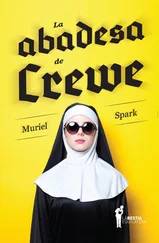Joanna lit the gas-ring in her room in the May of Teck Club and put on the kettle. She said to Nancy Riddle:
"The Prayer Book is wonderful. There was a new version got up in 1928, but Parliament put it out. Just as well, as it happened."
"What's the Prayer Book got to do with them?"
"It's within their jurisdiction funnily enough."
"I believe in divorce," Nancy said.
"What's that got to do with the Prayer Book?"
"Well, it's all connected with the C. of E. and all the arguing."
Joanna mixed some powdered milk carefully with water from the tap and poured the mixture upon two cups of tea. She passed a cup to Nancy and offered saccharine tablets from a small tin box. Nancy took one tablet, dropped it in her tea, and stirred it. She had recently got involved with a married man who talked of leaving his wife.
Joanna said, "My father had to buy a new cloak to wear over his cassock at funerals, he always catches cold at funerals. That means no spare coupons for me this year."
Nancy said, "Does he wear a cloak? He must be High. My father wears an overcoat; he's Low to Middle, of course."
All through the first three weeks of July Nicholas wooed Selina and at the same time cultivated Jane and others of the May of Teck Club.
The sounds and sights impinging on him from the hall of the club intensified themselves, whenever he called, into one sensation, as if with a will of their own. He thought of the lines:
_Let us roll all our strength, and all__
_Our sweetness up into one ball;__
And I would like, he thought, to teach Joanna that poem or rather demonstrate it; and he made spasmodic notes of all this on the back pages of his Sabbath manuscript.
Jane told him everything that went on in the club. "Tell me more," he said. She told him things, in her clever way of intuition, which fitted his ideal of the place. In fact, it was not an unjust notion, that it was a miniature expression of a free society, that it was a community held together by the graceful attributes of a common poverty. He observed that at no point did poverty arrest the vitality of its members but rather nourished it. Poverty differs vastly from want, he thought.
"Hallo, Pauline?"
"Yes?"
"It's Jane."
"Yes?"
"I've got something to tell you. What's the matter?
"I was resting."
"Sleeping?"
"No, resting. I've just got back from the psychiatrist, he makes me rest after every session. I've got to lie down."
"I thought you were finished with the psychiatrist. Are you not very well again?"
"This is a new one. Mummy found him, he's marvellous."
"Well, I just wanted to tell you something, can you listen? Do you remember Nicholas Farringdon?"
"No, I don't think so. Who's he?"
"Nicholas… remember that last time on the roof at the May of Teck… Haiti, in a hut… among some palms, it was market day, everyone had gone to the market centre. Are you listening?"
We are in the summer of 1945 when he was not only enamoured of the May of Teck Club as an aesthetic and ethical conception of it, lovely frozen image that it was, but he presently slept with Selina on the roof.
_The mountains look on Marathon__
_And Marathon looks on the sea;__
_And musing there an hour alone,__
_I dream'd that Greece might still be free;__
_for standing on the Persians' grave,__
_I could not deem myself a slave.__
Joanna needs to know more life, thought Nicholas, as he loitered in the hall on one specific evening, but if she knew life she would not be proclaiming these words so sexually and matriarchally as if in the ecstatic art of suckling a divine child.
_At the top of the house the apples are laid__
_in rows__
She continued to recite as he loitered in the hall. No one was about. Everyone was gathered somewhere else, in the drawing room or in the bedrooms, sitting round wireless sets, tuning in to some special programme. Then one wireless, and another, roared forth louder by far than usual from the upper floors; others tuned in to the chorus, justified in the din by the voice of Winston Churchill. Joanna ceased. The wirelesses spoke forth their simultaneous Sinaitic predictions of what fate would befall the freedom-loving electorate should it vote for Labour in the forthcoming elections. The wirelesses suddenly started to reason humbly:
We shall have Civil Servants…
The wirelesses changed their tones, they roared:
No longer civil…
Then they were sad and slow:
No longer…
… servants. "
Nicholas imagined Joanna standing by her bed, put out of business as it were, but listening, drawing it into her bloodstream. As in a dream of his own that depicted a dream of hers, he thought of Joanna in this immovable attitude, given up to the cadences of the wireless as if it did not matter what was producing them, the politician or herself. She was a proclaiming statue in his mind.
A girl in a long evening dress slid in the doorway, furtively. Her hair fell round her shoulders in a brown curl. Through the bemused mind of the loitering, listening man went the fact of a girl slipping furtively into the hall; she had a meaning, even if she had no meaningful intention.
She was Pauline Fox. She was returning from a taxi-ride round the park at the price of eight shillings. She had got into the taxi and told the driver to drive round, round anywhere, just drive. On such occasions the taxi-drivers suspected at first that she was driving out to pick up a man, then as the taxi circled the Park and threepences ticked up on the meter, the drivers suspected she was mad, or even, perhaps, one of those foreign royalties still exiled in London: and they concluded one or the other when she ordered them back to the door to which she had summoned them by carefully prearranged booking. It was dinner with Jack Buchanan which Pauline held as an immovable idea to be established as fact at the May of Teck Club. In the daytime she worked in an office and was normal. It was dinner with Jack Buchanan that prevented her from dining with any other man, and caused her to wait in the hall for half an hour after the other members had gone to the dining room, and to return surreptitiously half an hour later when nobody, or few, were about.
At times, when Pauline had been seen returning within so short a time, she behaved quite convincingly.
"Goodness, back already, Pauline! I thought you'd gone out to dinner with-"
"Oh! Don't talk to me. We've had a row." Pauline, with one hand holding a handkerchief to her eye, and the other lifting the hem of her dress, would run sobbing up the stairs to her room.
"She must have had a row with Jack Buchanan again. Funny she never brings Jack Buchanan here."
"Do you believe it?"
"What?"
"That she goes out with Jack Buchanan?"
"Well, I've wondered."
Pauline looked furtive, and Nicholas cheerfully said to her, "Where have you been?"
She came and gazed into his face and said, "I've been to dinner with Jack Buchanan."
"You've missed Churchill's speech."
"I know."
"Did Jack Buchanan get rid of you the moment you had finished your dinner?"
"Yes. He did. We had a row."
She shook back her shining hair. For this evening, she had managed to borrow the Schiaparelli dress. It was made of taffeta, with small side panniers stuck out with cleverly curved pads over the hips. It was coloured dark blue, green, orange and white in a floral pattern as from the Pacific Islands.
He said, "I don't think I've ever seen such a gorgeous dress."
"Schiaparelli," she said.
He said, "Is it the one you swap amongst yourselves?"
"Who told you that?"
"You look beautiful," he replied.
She picked up the rustling skirt and floated away up the staircase.
Читать дальше
